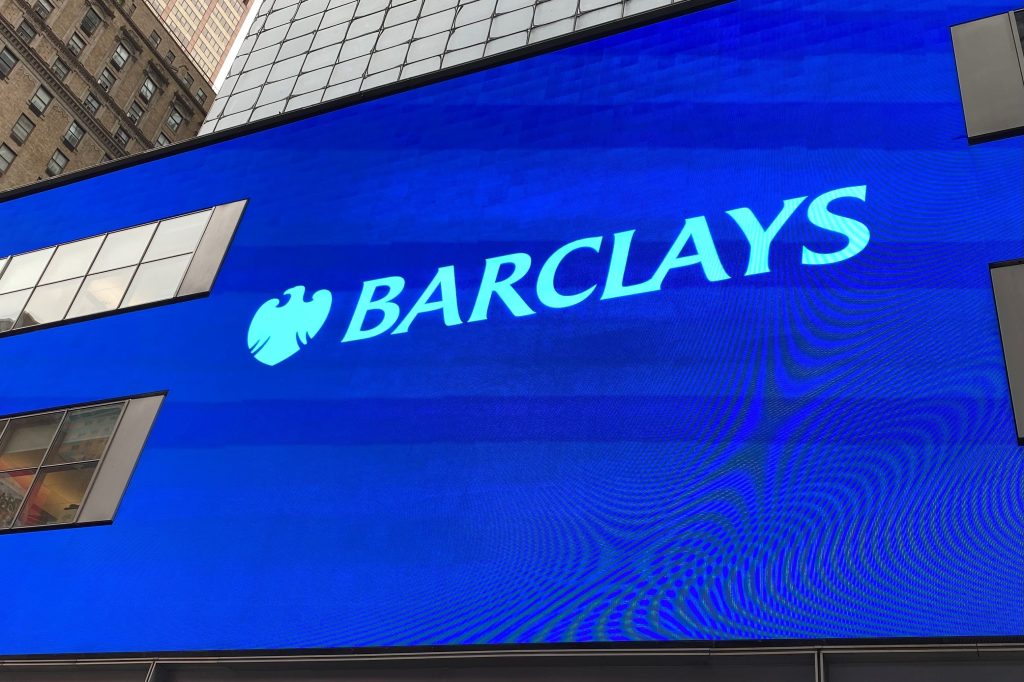Barclays Bank PLC has agreed to pay a $4m fine to resolve a regulator’s claims over its admitted violations of swap-reporting regulations.
The CFTC said Barclays failed to correctly or timely report more than five million swap transactions between 2018 and 2023.
“This resolution, which also includes admissions, reflects the division’s ongoing commitment to ensure the costs of violating the law outweigh the costs of compliance,” said Director of Enforcement Ian McGinley.
Deficient reporting system
According to the order, from 2018 through 2023, Barclays failed to correctly report, or failed to timely report, millions of swap transactions in violation of CFTC regulations.
These reporting failures stemmed from multiple, distinct deficiencies in Barclays’ reporting systems and software during the relevant period, the CFTC said.
More specifically, the derivatives regulator said that during the relevant period Barclays misreported such transactions due to:
- the use of a duplicate swap identifier;
- incorrect reporting of primary economic terms;
- misreported time stamps;
- errors in connection with continuation data reporting; and
- late reporting.
In total, aggregating all the categories of conduct, the CFTC said Barclays either did not correctly report, or did not timely report, more than five million swap transactions throughout 2018 to 2023.
Cooperation credit
The CFTC said Barclays provided substantial cooperation during its investigation and proactively flagged swap-reporting issues for the agency, leading to a reduced penalty. The order says the bank has taken steps to remediate the matter, including voluntarily engaging third-party vendors to review and validate its swap-reporting processes.
The CFTC charged the firm with violations of CFTC Regulations 43.3 and 45.3-4, which pertain to the timely reporting of swap transaction information to the Commission or other appropriate entity.
Swap reporting & CFTC surveillance
Stricter requirements for swap reporting stem from the 2008 financial crisis and the Dodd-Frank Act.
Under the sweeping set of new rules designed under that landmark law, the CFTC adopted regulations pertaining to swap reporting, knowing the reported information could be used for a variety of purposes, including assessing individual traders’ activities and potential market power and risk, as well as monitoring compliance with CFTC position limit rules.
“Over the last year, the CFTC has imposed over $60 million in penalties on six registered swap dealers, including Barclays here, in connection with swap data reporting violations.”
Ian McGinley, Director of Enforcement
The CFTC pointed out in its order that its “market surveillance system depends on firms’ properly reporting because, among other things, a firm’s failure to accurately report positions may allow traders to hold positions in excess of speculative limits and to exercise market power without detection.”
In addition, the CFTC’s swap-data reporting regulations provide market participants with crucial real-time information regarding market liquidity and pricing, the agency noted.
In 2020, the CFTC refined its reporting requirements to ensure the CFTC receives accurate, complete, and high-quality data for swap transactions, noting at the time that it was doing so to enhance market transparency and the agency’s risk monitoring and oversight functions.
Prior cases
“Over the last year, the CFTC has imposed over $60 million in penalties on six registered swap dealers, including Barclays here, in connection with swap data reporting violations,” McGinley noted in the press release accompanying the order in this case.
Looking back, we can see the CFTC noting repeated failures to correctly report millions of swap transactions to a registered swap data repository, which led to a fine from the agency for the the Bank of New York Mellon.
And last September, the CFTC filed and settled charges with the affiliates of three financial institutions – Goldman Sachs, JPMorgan and Bank of America – for a variety of swap dealer activities including failures related to swap data reporting. In that case, Goldman Sachs received a $30m civil monetary penalty and the settlement included compliance undertakings, such as Goldman taking steps to develop a written remediation plan and retaining a consultant to advise on and assess this.
Pham’s statement
CFTC Commissioner Caroline Pham issued a statement saying she was pleased the CFTC gave substantial credit to Barclays – which is, as she notes, is a non-U.S. swap dealer, for its self-reporting, cooperation, and remediation effort.
“This is a move in the right direction for the CFTC, and is a return to a more normal and rational approach to enforcement actions for operational or technical issues with no misconduct, harm to clients, or financial losses,” she said.
She goes on to say that, as reflected in recent settlement orders, “the CFTC changed its approach to swap data reporting cases in 2023 to be excessively and disproportionately punitive, and more generally has shifted its enforcement program to focus on registration and compliance instead of the CFTC’s mission to prevent fraud, manipulation, and abuse in our markets.”
Referring to the agency’s significant enforcement activity in this arena last year in particular, Pham questioned why the CFTC changed its approach to assessing civil monetary penalties in swap data reporting matters in 2023 without sufficient reasoning and justification or fair notice to the public. “Swap data reporting did not suddenly become more important in 2023 – it has been important for transparency and monitoring of systemic risk ever since the Dodd-Frank Act was implemented in 2010. I hope that the CFTC will continue to correct this misguided change in approach,” she said.












